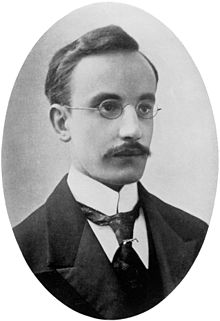Joseph Everett Dutton
| Joseph Everett Dutton | |
|---|---|
 |
|
| Born |
9 September 1874 Upper Bebington, Cheshire, England |
| Died | 27 February 1905 (aged 30) Kasongo, Congo |
| Nationality | British |
| Occupation | Parasitologist |
| Known for | Discovery of the cause of sleeping sickness |
Joseph Everett Dutton (9 September 1874 – 27 February 1905) was a British Parasitologist who discovered one of the trypanosomes that cause sleeping sickness. He died in the Congo Free State at the age of 30 from tick fever, or African relapsing fever, while investigating the disease, which is caused by a spirillum that was later named Borrelia duttoni.
Joseph Everett Dutton was born on 9 September 1874 in Upper Bebington, Cheshire. His father was John Dutton, a chemist, and his mother was Sarah Ellen Moore. He was their fifth son. He attended The King's School, Chester (January 1888 – May 1892).
He was admitted to the University of Liverpool in 1892, and earned the gold medal in anatomy and physiology, and the medal in materia medica in 1895. He won the medal in pathology at Victoria University in 1896. He graduated in 1897, and was appointed George Holt fellow in Pathology. He was appointed a resident at the Liverpool Royal Infirmary. He served as house surgeon under Professor Rushton Parker for six months, and then as house physician under Professor Richard Caton.
Dutton joined an expedition to Nigeria in 1900, the third expedition arranged by the Liverpool Medical School, with H.E. Annett and J.H. Elliott. This trip led to two reports, one on sanitation to avoid malaria and the other on filariasis. In 1901 he was elected Walter Myers Fellow in Parasitology.
Dutton undertook an expedition to the Gambia on his own at the start of 1901. He prepared a thorough report on methods of fighting malaria. On 10 May 1901 the colonial surgeon at the hospital in Bathurst showed him a blood sample from a government employee with "very many actively moving worm-like bodies whose nature he was unable to ascertain". The patient returned to England, and Dutton examined him again there, but could not detect any parasites. However, when both the patient and Dutton were back in Gambia on 15 December 1901, Dutton again examined blood samples and "found a flagellate protozoon evidently belonging to the genus Trypanosoma".
...
Wikipedia
